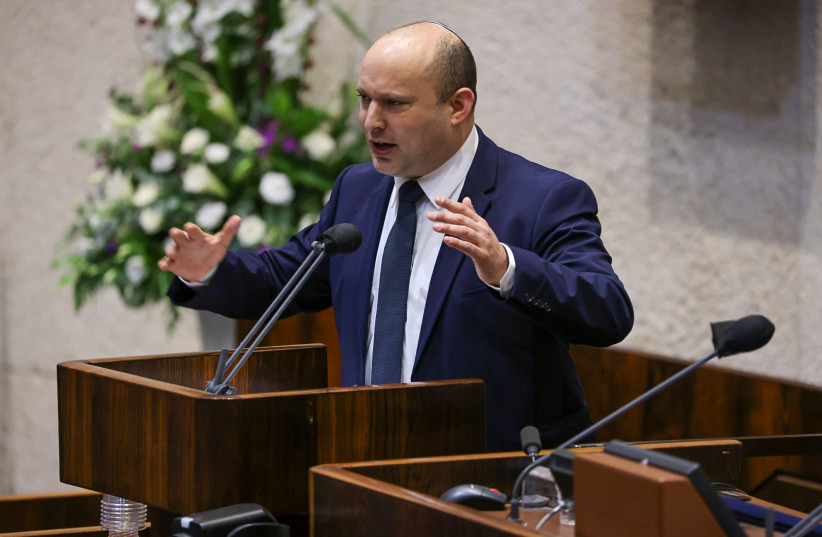On Monday afternoon, Prime Minister Naftali Bennett dropped a bombshell.
“Last month, Mossad agents – men and women – embarked on a complex, wide-ranging and daring operation to find the remains and whereabouts of Ron Arad,” Bennett said at the opening of the Knesset’s winter session. “That is all that can be said at the moment.”
Immediately, the announcement became the top story in Israel and led almost every news website and radio show, largely because Ron Arad is a story that has long captivated Israelis ever since he was captured in Lebanon after ejecting from his damaged Israel Air Force plane in 1986. Next week, on October 16th, Israel will mark 35 years since his fall into captivity.
Arad was an Israel Air Force weapon systems officer who was captured after a bomb his plane dropped caused damage to the aircraft. The pilot was saved, but Arad was captured by the Lebanese Shi’ite group Amal, and later transferred to Iranian forces.
Arad sent three letters from captivity, and two photos of him and a video were released from his first year of captivity. According to reports, Israel lost track of his whereabouts sometime in mid-1988.
For years, Israelis have hung blue balloons outside their doorsteps on the anniversary of the day of his capture, expressing solidarity with the Arad family — his wife, Tammy, and daughter, Yuval — showing them that the public has not forgotten Ron and that they are not alone in their struggle to secure his freedom.

As Lahav Harkov and Gil Hoffman noted in Tuesday’s Post, there have been a number of Israeli operations over the years to obtain information about his fate, including the capture of top Hezbollah members and an offer of a $10 million reward.
A joint report by the Mossad and the IDF determined in 2016 that Arad likely died in 1988.
After Bennett’s announcement, senior security officials denied his claims that the operation had yielded success. Some dubbed it a failure and said that no new information was found during the mission.
The Prime Minister’s Office rushed to reject these claims and repeated the notion that the operation was a success, and that it had achieved “exceptional goals.”
It added in the statement that “exposing this information to the Knesset and the public was valuable. It shows our commitment to bringing back our boys, even years after they were captured by the enemy.”
At this point, the question to ask is, why? Why did Bennett release this information about Arad and why did he not explain, in the beginning, what had been achieved. What was so valuable about it?
Unfortunately, the way things seem now, the remarks were part of a political manipulation. A sitting prime minister was using his position to reveal classified intelligence in order to score political points.
It seems this way because we have seen this done in the past. We all remember how before the April 2019 election, then-prime minister Benjamin Netanyahu brought back Zachary Baumel’s remains from Russia. We remember the time when Netanyahu surprisingly announced that the watch of legendary Israeli spy Eli Cohen was found by the Mossad, and was given back to his family. When that announcement was made, Netanyahu was criticized for withholding the information for weeks and making it public to divert attention from the crisis he had started when he issued a joint statement with the Polish prime minister saying Israel accepted Warsaw’s narrative regarding Polish complicity during the Holocaust.
Bennett owes the public some answers.
This operation might have great significance in uncovering new information about the fate of Ron Arad or in achieving regional goals that Israel is seeking to advance. But since Bennett’s announcement on Monday, we know very little about what happened.
If it’s just another manipulation, then Bennett is not different from his predecessor.
If it is valuable for the public to know, then the situation needs to be clarified.
And then there’s another option: Let the Mossad do its important work in the shadows, and keep it out of the Knesset and politics.
When there’s something to say, let the public know. Until then, we question the value of public disclosure.
